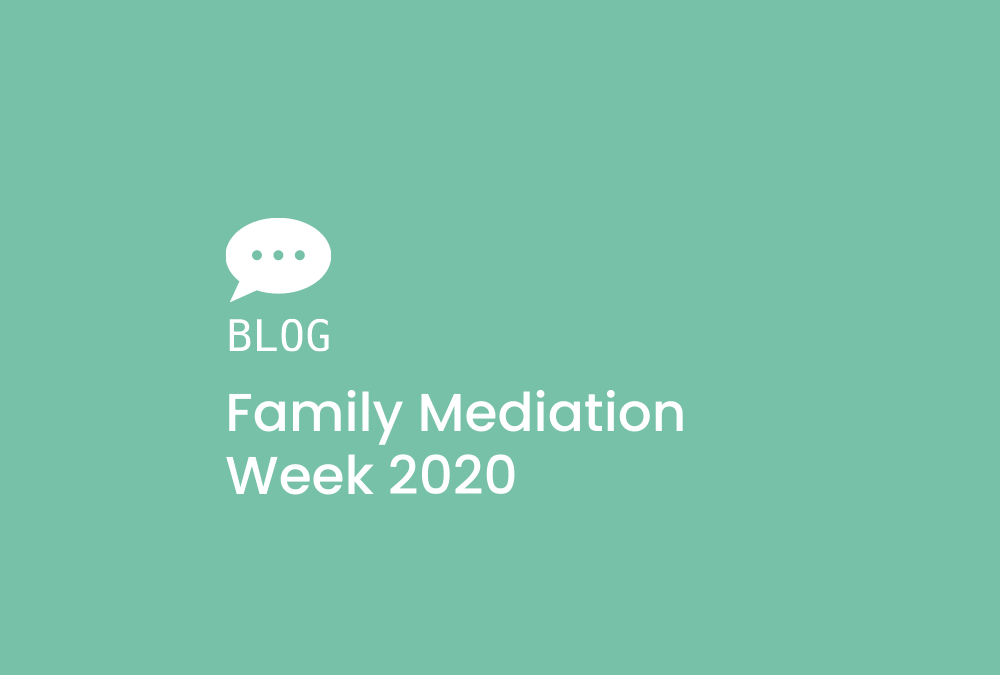As part of Family Mediation Week and to raise awareness of the benefits of mediation, I will be offering free initial mediation assessment meetings (MIAM) from 20th-24th January 2020. To take advantage of this please quote ‘#familymediationweek’ when making an appointment. To make an appointment please contact me on s.manning@consilialegal.co.uk or contact me on 0113 58874671 or pass my details on to your clients.
Conversations About Family Mediation
Family Mediation: What is this? This is where an independent, professionally trained mediator assists both parties to reach an agreement about issues such as: –
- Child arrangements following the breakdown of their relationship which can also include child maintenance; and
- Finances which includes both parties’ property, savings, investments, business, pensions, debts etc.
Mediation is also a service which can help both parties to communicate better with one another and assist with any changes to existing arrangements.
How does mediation work?
- The process is started when a referral is received from either party or a solicitor. The referral will include contact details for both parties and include a brief outline of the issues that need to be discussed within the mediation process.
- Once the referral is received, the mediation service will arrange for both parties to attend a Mediation Information and Assessment Meeting (MIAM) separately. During the appointment, the mediator will explain how the mediation process works and how they will be able to assist and hear in more details about the issues that the parties wish to discuss at mediation. The mediator will also do their own assessment to see if mediation is suitable and carry out a domestic violence screening. Both parties attend the MIAM separately. At the end of the session, the mediator will carry out a willingness and suitability test to ascertain if mediation is suitable and the parties are willing to attend a joint session with their ex-partner.
Following the MIAM, one of the following will happen:
- If either party does not wish to proceed with the mediation process or if one party refuses to attend their MIAM, the mediator can sign the C100 form or Form A, which is the Court forms required to issue Court proceedings to say that they have attended a MIAM. It is now compulsory to attend a MIAM before a party is able to issue court proceedings for children or financial matters.
- If both parties are willing to continue with the mediation process, a joint session will be arranged. During this session, both parties will sit with the mediator and explore options as to how they can reach important decisions for their family, whether in relation to children and/or financial matters.
Is mediation right for me?
There are many benefits to attending mediation as opposed to going straight to court. The advantages of mediation are: –
- It is quicker and a cheaper process than going to court;
- It allows parties to remain in control of the decisions which will affect their future rather than decided by a Judge or Magistrates;
- At mediation the outcome is usually reached together by way of negotiation and compromise;
- Mediation encourages parties to co-parent together and make decisions together for the benefit of their child or children;
- If there are children involved, mediation can assist them to rebuild/retain a working dialogue with the other parent;
- Mediation is confidential. It allows parties to speak freely and explore options that they might not necessarily do at court;
- If a settlement is reached, the mediator will prepare a Memorandum of Understanding which is a document setting out matters discussed and the consensus reached. This can then be taken to your respective legal advisors who can seek that the Court make an order to make the agreement legally binding;
- In financial mediations, the mediator can also prepare an Open Financial Statement which contains a summary of your respective financial information.

